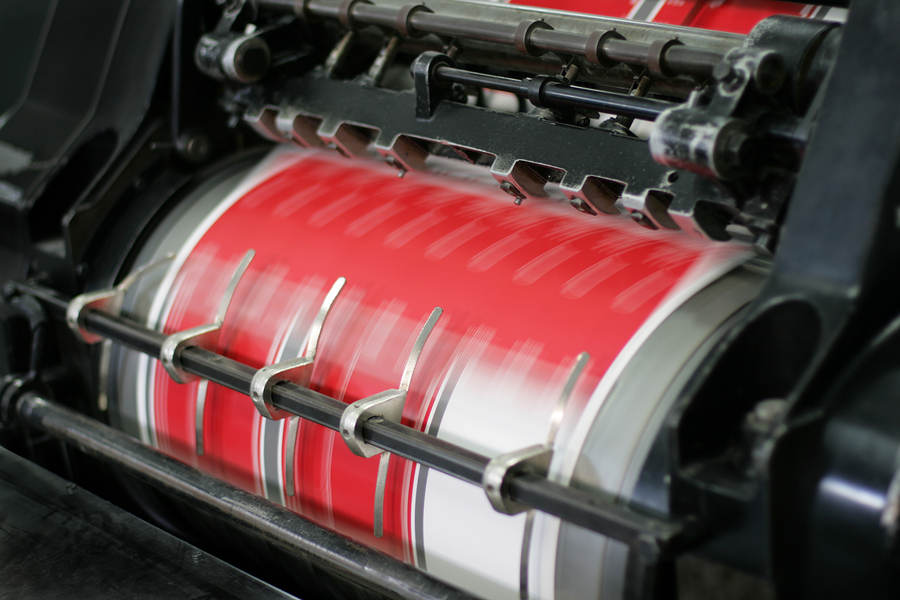Discover the Durability and Quality of litho printing
Discover the Durability and Quality of litho printing
Blog Article
A Comprehensive Overview to Recognizing Litho Printing Techniques
The world of litho printing, a method stemming from the late 18th century, is a fascinating mix of background, technology, art and scientific research. This extensive guide will certainly decipher the intricacies of this printing technique, from the structure of litho inks to the challenges encountered in contemporary applications. As we venture into the intricacies of lithography, the significance of automation and sustainability in guaranteeing its future importance ends up being increasingly clear. Stay with us as we journey into the exciting world of litho printing.
The Historical Evolution of Litho Printing
The historic trajectory of litho printing, a crucial technology in the realm of communication, is a fascinating story of human ingenuity. The procedure developed with the arrival of the rotary press, which significantly boosted performance. Each stage of litho printing's advancement showcases mankind's relentless quest of effectiveness and high quality in visual interaction.
Deciphering the Science Behind Litho Printing Inks
Moving onward in the exploration of litho printing techniques, the focus currently moves to the scientific research behind litho printing inks. The structure of these inks, their drying out procedure, and color mixing methods form the backbone of this intricate art kind. Understanding these elements is crucial to understanding the craft and attaining the desired print outcomes.
Composition of Litho Inks
In lithographic printing, the basic function of litho inks can not be overstated. Pigments, the color-providing aspects, are finely ground particles suspended in the automobile, a fluid that carries the pigment onto the printing surface area. Each part plays an essential part in the last print's top quality, making the exact formula of litho inks an elaborate science.
Ink Drying Refine
From the make-up of litho inks, focus turns to the remarkable process of ink drying out. Two key approaches are utilized in litho printing: oxidative drying out and absorption. Absorption, on the various other hand, involves the ink permeating into the paper fibers, which is a much faster procedure but can lead to much less vivid colors.
Shade Mixing Strategies
While the drying process plays a key function in litho printing, the science of shade mixing methods holds equivalent significance. The scientific research behind litho printing inks additionally takes into account the openness of the ink, which affects just how colors overlay and mix.
The Art and Style Elements in Litho Printing
Litho printing takes a breath life right into art and layout with its unique aspects. Litho printing fits a variety of shades, enabling artists to produce vibrant and vivid prints. This combination of precision and adaptability makes litho printing a recommended selection for Going Here several artists and designers.
Modern Applications of Litho Printing Techniques
Litho printing strategies have actually found considerable use in the contemporary commercial industry. Its influence and significance continue to grow with the advent of new advancements and innovations in the area. This area will certainly explore these contemporary applications and the transformative duty they play in the printing industry.
Business Litho Printing Uses
In today's electronic age, one could question regarding the relevance of conventional printing techniques. Litho printing remains a vital component of the business field. High-volume printing jobs, such as the manufacturing of publications, newspapers, and packaging, rely upon litho printing for its top article capability to supply premium image quality and price performance. The procedure, which entails moving an inked picture from a plate onto a rubber blanket and then to the printing surface area, offers unmatched consistency. This makes it perfect for tasks calling for a big print run. Litho printing also gives a wide shade range, superior to that of electronic printing. This makes it the go-to choice for jobs that require lively, top notch color reproduction.
Innovations in Litho Printing
Pushing the borders of typical strategies, modern-day improvements have actually fueled a host of advancements in litho printing. These advancements have not only improved the high quality and performance of litho prints yet also broadened its application scope. One noticeable growth is digital litho printing, which integrates the merits of digital technology with litho's premium output. This hybrid version uses faster setup times, lowered waste, and allows on-demand printing. One more remarkable development is the introduction of eco-friendly inks. These inks, made from vegetable or soy-based remedies, have actually dramatically minimized the market's environmental effect. litho printing. Furthermore, the development of innovative plate technology has streamlined the printing procedure, leading to sharper images and boosted color fidelity. These technologies underscore the enduring relevance of litho printing in the contemporary world.
Exploring the Process of Litho Printing: Detailed

Obstacles and Solutions in Contemporary Litho Printing
Despite the precision and custom that litho printing proudly supports, it is not without its set of contemporary difficulties. Digital litho printing allows for economical short runs and easy modification, addressing the problem of variable information. Therefore, while there are obstacles, the litho printing try this industry is proactively adapting to fulfill them head-on, ensuring its relevance in the future.
Conclusion
To conclude, litho printing, with its abundant history and scientific ins and outs, holds a substantial place in the print industry. As the guide exposes, it's a synthesis of art and technology, with contemporary advancements ensuring its relevance. The market faces obstacles that need ingenious services, with a focus on automation and sustainability. The future of litho printing rests on its capability to adapt to these changing demands, attesting its long-lasting worth in a developing market.

Report this page